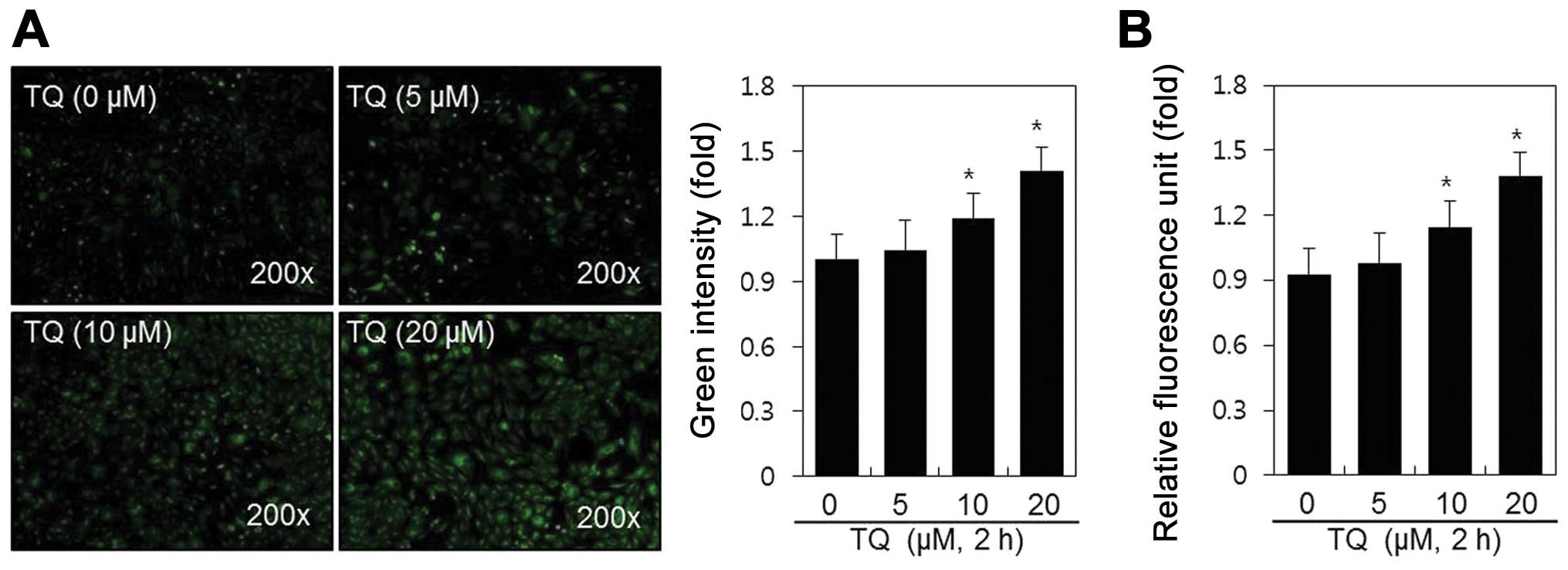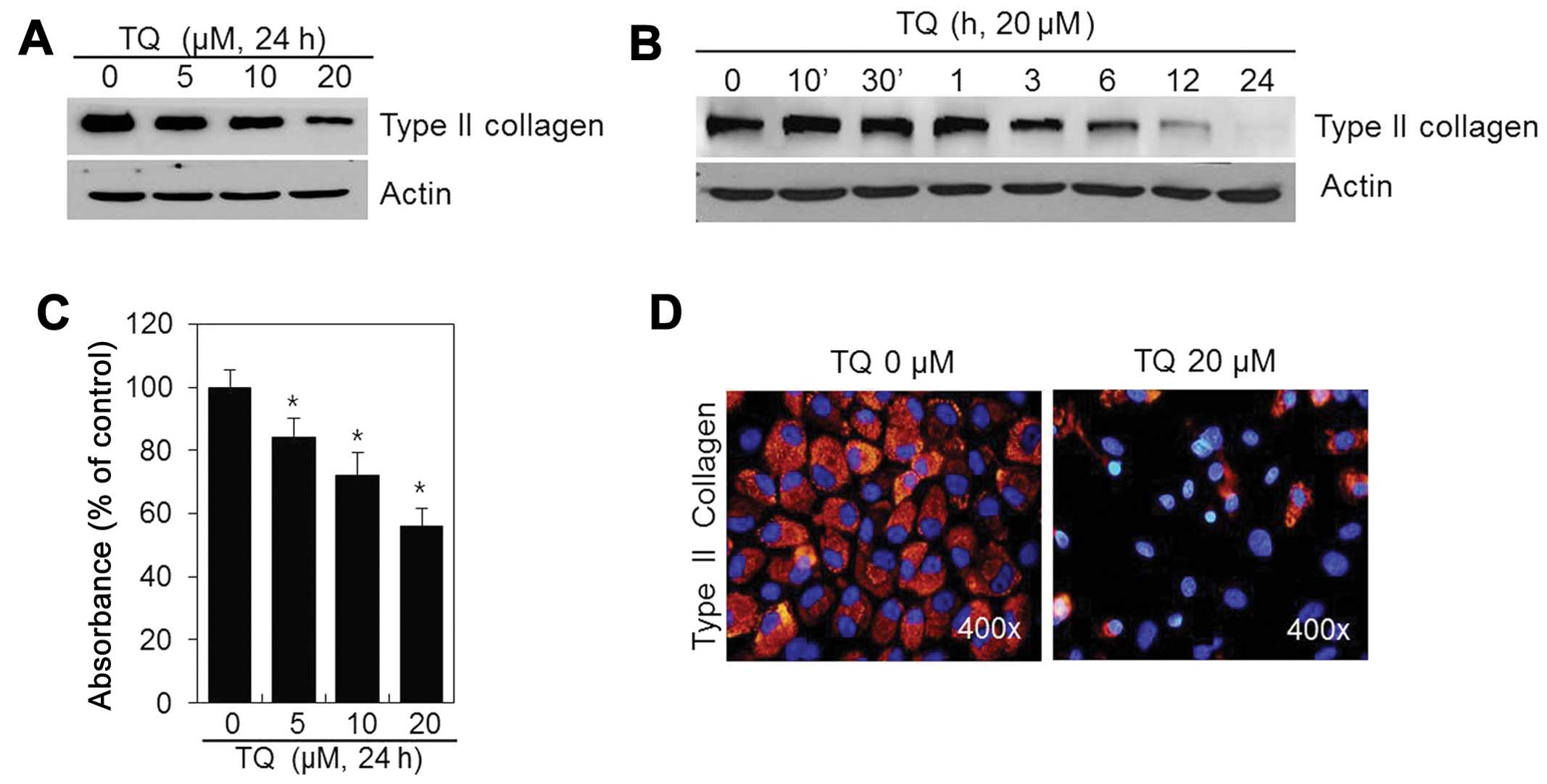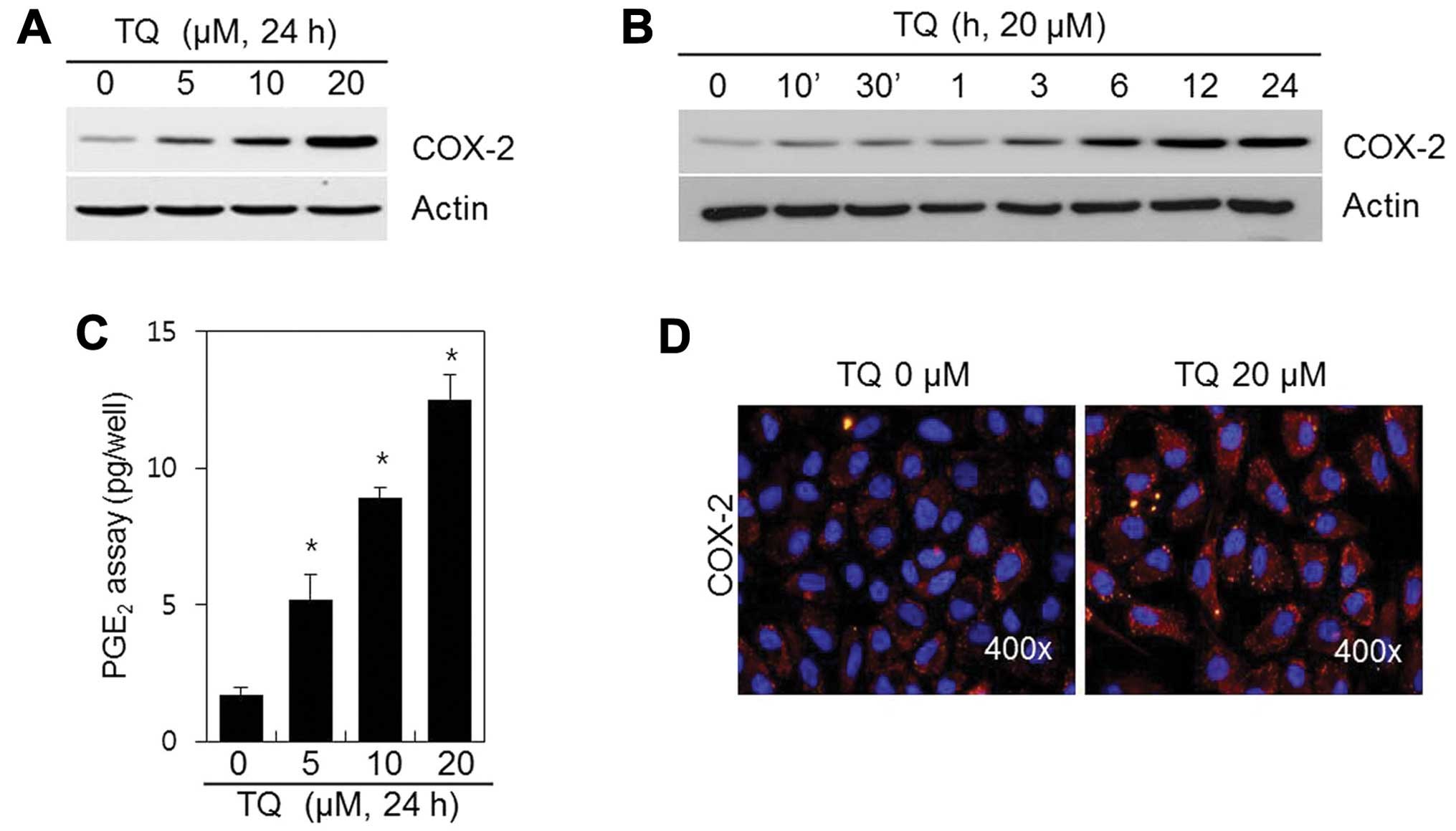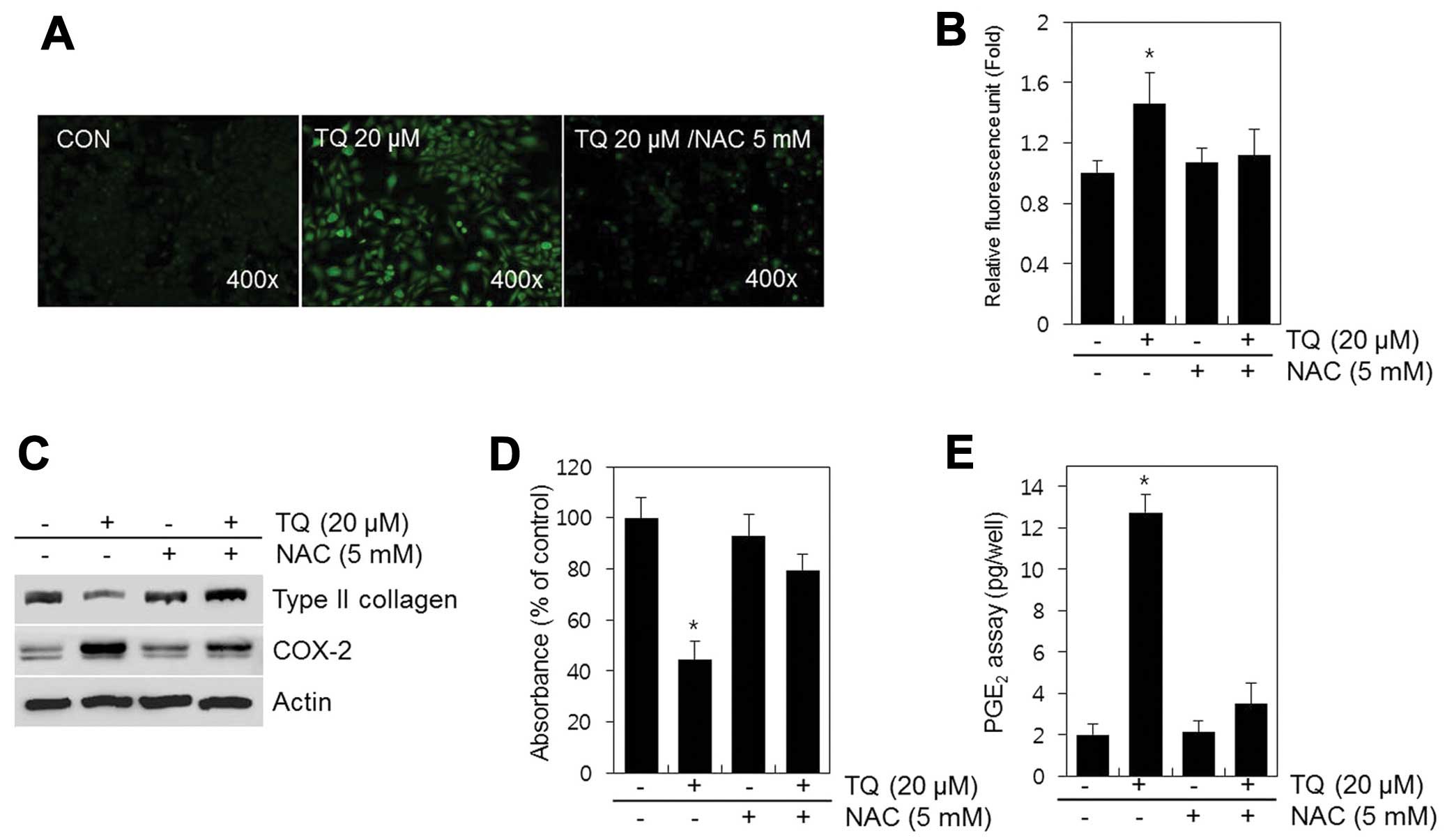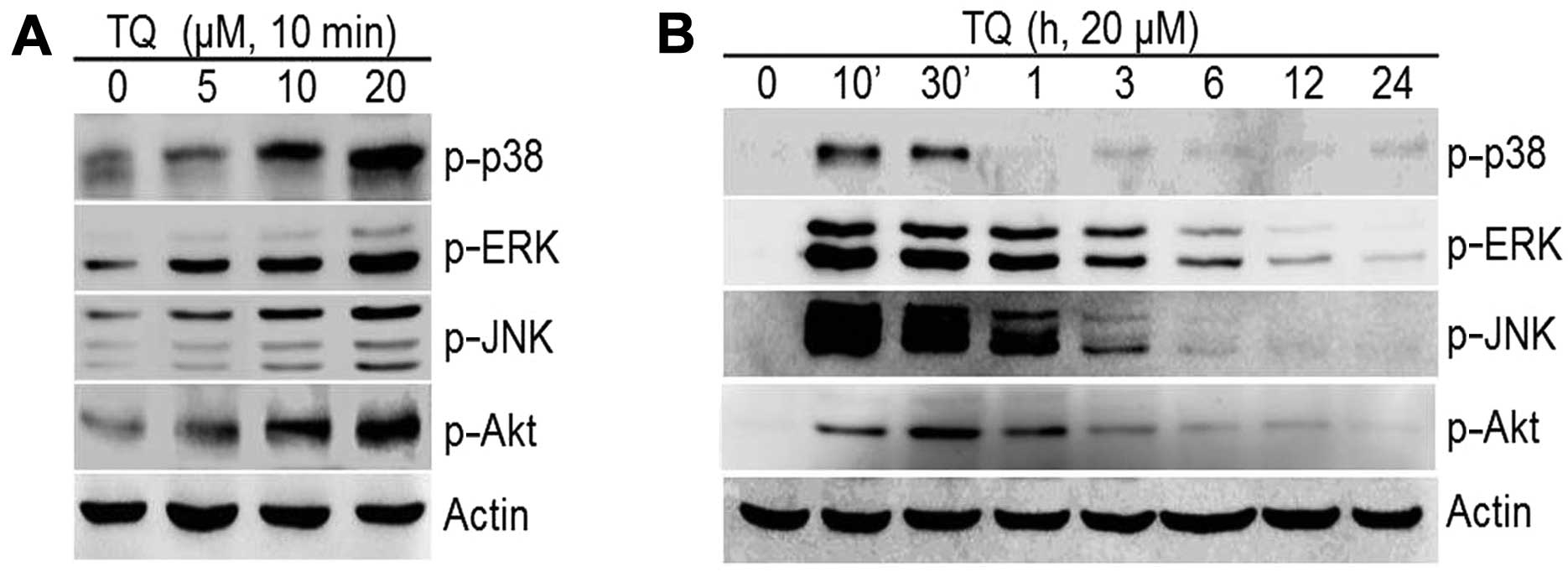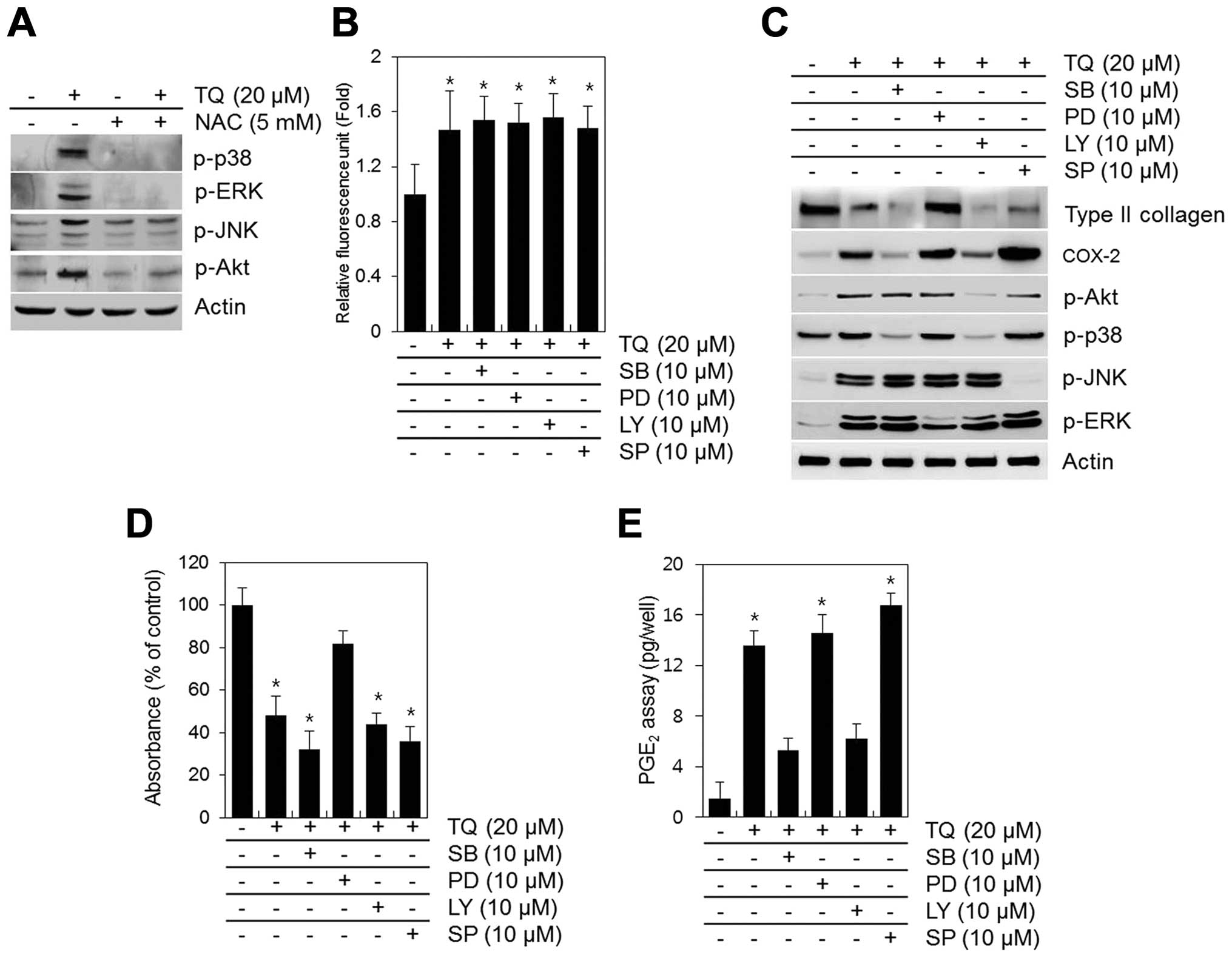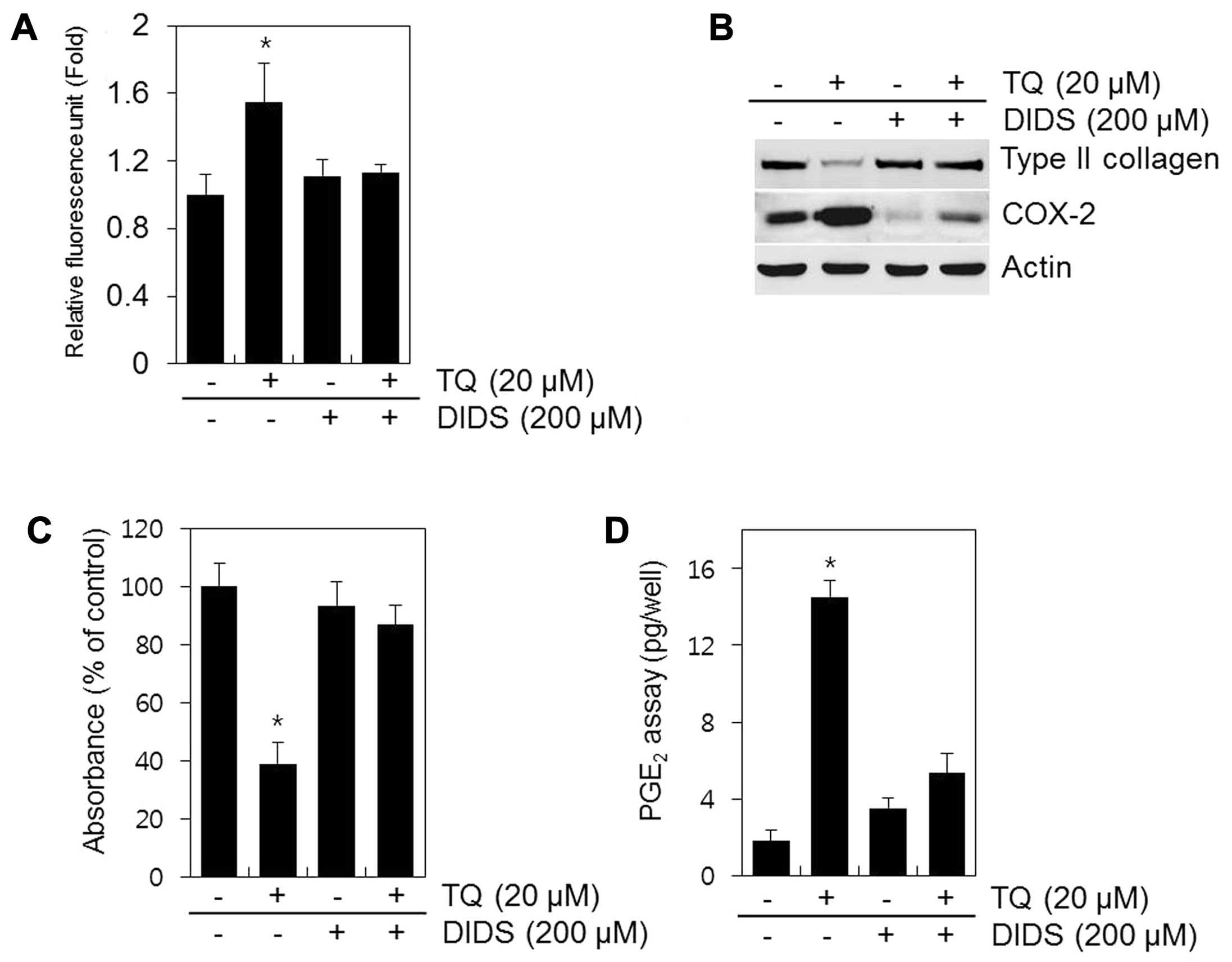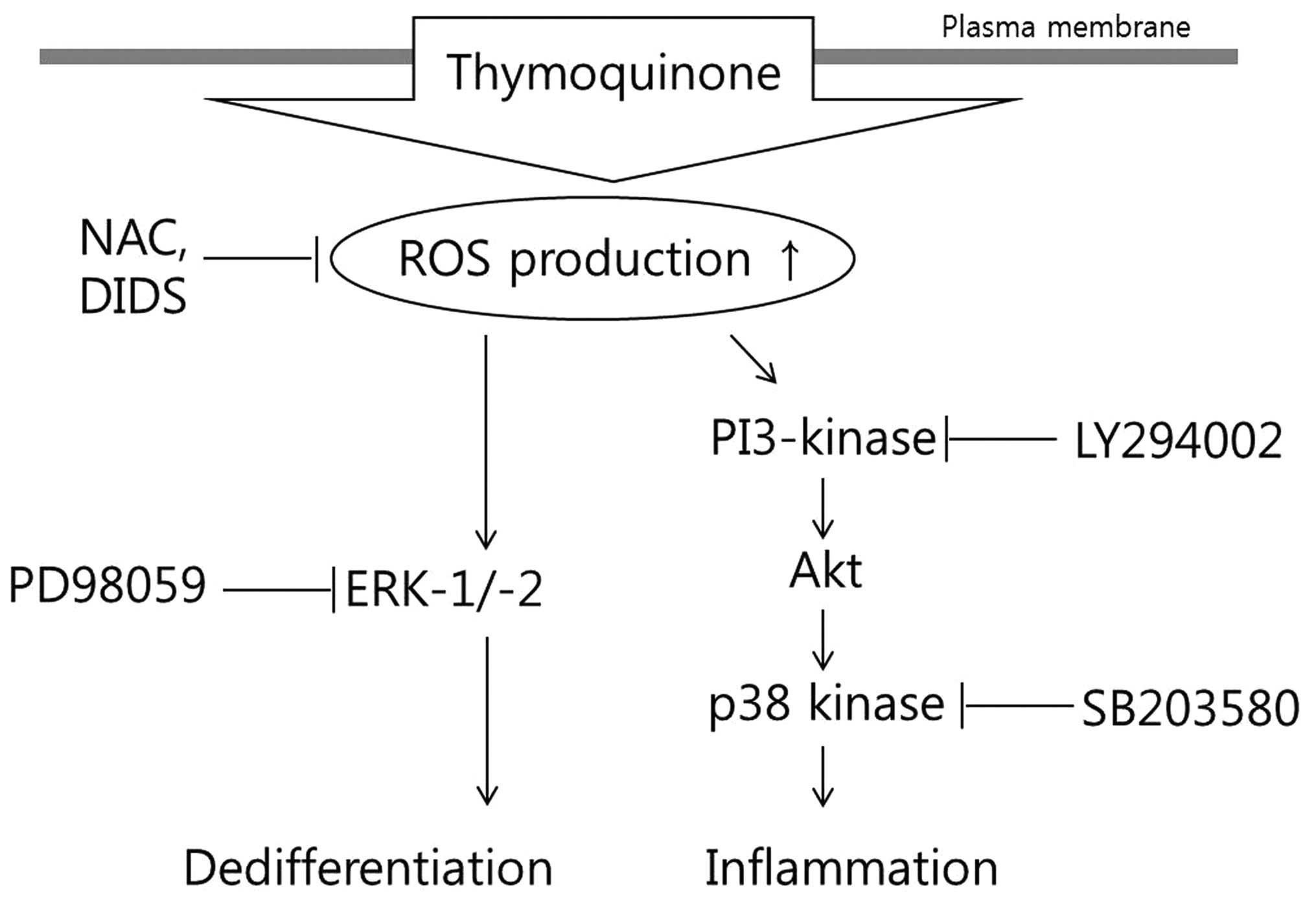|
1
|
Hunter DJ and Felson DT: Osteoarthritis.
BMJ. 332:639–642. 2006. View Article : Google Scholar : PubMed/NCBI
|
|
2
|
Blagojevic M, Jinks C, Jeffery A and
Jordan KP: Risk factors for onset of osteoarthritis of the knee in
older adults: a systematic review and meta-analysis. Osteoarthritis
Cartilage. 18:24–33. 2010. View Article : Google Scholar
|
|
3
|
Goldring MB, Tsuchimochi K and Ijiri K:
The control of chondrogenesis. J Cell Biochem. 97:33–44. 2006.
View Article : Google Scholar
|
|
4
|
Maroudas A, Bayliss MT, Uchitel-Kaushansky
N, Schneiderman R and Gilav E: Aggrecan turnover in human articular
cartilage: use of aspartic acid racemization as a marker of
molecular age. Arch Biochem Biophys. 350:61–71. 1998. View Article : Google Scholar : PubMed/NCBI
|
|
5
|
Thomas B, Thirion S, Humbert L, et al:
Differentiation regulates interleukin-1beta-induced
cyclooxygenase-2 in human articular chondrocytes: role of p38
mitogen-activated protein kinase. Biochem J. 362:367–373. 2002.
View Article : Google Scholar : PubMed/NCBI
|
|
6
|
Crofford LJ, Lipsky PE, Brooks P, Abramson
SB, Simon LS and van de Putte LB: Basic biology and clinical
application of specific cyclooxygenase-2 inhibitors. Arthritis
Rheum. 43:4–13. 2000. View Article : Google Scholar : PubMed/NCBI
|
|
7
|
Burdan F, Chalas A and Szumilo J:
Cyclooxygenase and prostanoids - biological implications. Postepy
Hig Med Dosw (Online). 60:129–141. 2006.(In Polish).
|
|
8
|
Droge W: Free radicals in the
physiological control of cell function. Physiol Rev. 82:47–95.
2002.PubMed/NCBI
|
|
9
|
Tormos KV, Anso E, Hamanaka RB, et al:
Mitochondrial complex III ROS regulate adipocyte differentiation.
Cell Metab. 14:537–544. 2011. View Article : Google Scholar : PubMed/NCBI
|
|
10
|
Nathan C and Cunningham-Bussel A: Beyond
oxidative stress: an immunologist's guide to reactive oxygen
species. Nat Rev Immunol. 13:349–361. 2013. View Article : Google Scholar : PubMed/NCBI
|
|
11
|
Cadet J and Wagner JR: DNA base damage by
reactive oxygen species, oxidizing agents, and UV radiation. Cold
Spring Harb Perspect Biol. 5:pii: a0125592013. View Article : Google Scholar
|
|
12
|
Sasaki K, Hattori T, Fujisawa T, Takahashi
K, Inoue H and Takigawa M: Nitric oxide mediates
interleukin-1-induced gene expression of matrix metalloproteinases
and basic fibroblast growth factor in cultured rabbit articular
chondrocytes. J Biochem. 123:431–439. 1998. View Article : Google Scholar : PubMed/NCBI
|
|
13
|
Woo CC, Kumar AP, Sethi G and Tan KH:
Thymoquinone: potential cure for inflammatory disorders and cancer.
Biochem Pharmacol. 83:443–451. 2012. View Article : Google Scholar
|
|
14
|
Kim KJ, Lee OH and Lee BY:
Low-molecular-weight fucoidan regulates myogenic differentiation
through the mitogen-activated protein kinase pathway in C2C12
cells. Br J Nutr. 106:1836–1844. 2011. View Article : Google Scholar : PubMed/NCBI
|
|
15
|
Wang H, Xi S, Xu Y, et al: Sodium arsenite
induces cyclooxygenase-2 expression in human uroepithelial cells
through MAPK pathway activation and reactive oxygen species
induction. Toxicol In Vitro. 27:1043–1048. 2013. View Article : Google Scholar : PubMed/NCBI
|
|
16
|
Yoon YM, Kim SJ, Oh CD, et al: Maintenance
of differentiated phenotype of articular chondrocytes by protein
kinase C and extracellular signal-regulated protein kinase. J Biol
Chem. 277:8412–8420. 2002. View Article : Google Scholar
|
|
17
|
Asahina I, Sampath TK and Hauschka PV:
Human osteogenic protein-1 induces chondroblastic, osteoblastic,
and/or adipocytic differentiation of clonal murine target cells.
Exp Cell Res. 222:38–47. 1996. View Article : Google Scholar : PubMed/NCBI
|
|
18
|
Qi Z, Yin F, Lu L, et al: Baicalein
reduces lipopolysaccharide-induced inflammation via suppressing
JAK/STATs activation and ROS production. Inflamm Res. 62:845–855.
2013. View Article : Google Scholar : PubMed/NCBI
|
|
19
|
Pamenter ME, Ali SS, Tang Q, et al: An in
vitro ischemic penumbral mimic perfusate increases NADPH
oxidase-mediated superoxide production in cultured hippocampal
neurons. Brain Res. 1452:165–172. 2012. View Article : Google Scholar : PubMed/NCBI
|
|
20
|
Dycus DL, Au AY, Grzanna MW, Wardlaw JL
and Frondoza CG: Modulation of inflammation and oxidative stress in
canine chondrocytes. Am J Vet Res. 74:983–989. 2013. View Article : Google Scholar : PubMed/NCBI
|
|
21
|
Yu SM and Kim SJ: Production of reactive
oxygen species by withaferin A causes loss of type collagen
expression and COX-2 expression through the PI3K/Akt, p38, and JNK
pathways in rabbit articular chondrocytes. Exp Cell Res.
319:2822–2834. 2013. View Article : Google Scholar : PubMed/NCBI
|
|
22
|
Brouilette S, Singh RK, Thompson JR,
Goodall AH and Samani NJ: White cell telomere length and risk of
premature myocardial infarction. Arterioscler Thromb Vasc Biol.
23:842–846. 2003. View Article : Google Scholar : PubMed/NCBI
|
|
23
|
Bubici C, Papa S, Dean K and Franzoso G:
Mutual cross-talk between reactive oxygen species and nuclear
factor-kappa B: molecular basis and biological significance.
Oncogene. 25:6731–6748. 2006. View Article : Google Scholar : PubMed/NCBI
|
|
24
|
Tiku ML, Shah R and Allison GT: Evidence
linking chondrocyte lipid peroxidation to cartilage matrix protein
degradation. Possible role in cartilage aging and the pathogenesis
of osteoarthritis. J Biol Chem. 275:20069–20076. 2000. View Article : Google Scholar : PubMed/NCBI
|
|
25
|
Sauter E, Buckwalter JA, McKinley TO and
Martin JA: Cytoskeletal dissolution blocks oxidant release and cell
death in injured cartilage. J Orthop Res. 30:593–598. 2012.
View Article : Google Scholar
|
|
26
|
Korbecki J, Baranowska-Bosiacka I,
Gutowska I and Chlubek D: The effect of reactive oxygen species on
the synthesis of prostanoids from arachidonic acid. J Physiol
Pharmacol. 64:409–421. 2013.PubMed/NCBI
|
|
27
|
Yu SM and Kim SJ: Thymoquinone-induced
reactive oxygen species causes apoptosis of chondrocytes via
PI3K/Akt and p38kinase pathway. Exp Biol Med (Maywood).
238:811–820. 2013. View Article : Google Scholar
|
|
28
|
Kim MJ, Nepal S, Lee ES, Jeong TC, Kim SH
and Park PH: Ethanol increases matrix metalloproteinase-12
expression via NADPH oxidase-dependent ROS production in
macrophages. Toxicol Appl Pharmacol. 273:77–89. 2013. View Article : Google Scholar : PubMed/NCBI
|
|
29
|
Sawicki G: Synergistic effect of
inhibitors of MMPs and ROS-dependent modifications of contractile
proteins on protection hearts subjected to oxidative stress. Curr
Pharm Des. 20:1345–1348. 2013. View Article : Google Scholar : PubMed/NCBI
|
|
30
|
Torres M and Forman HJ: Redox signaling
and the MAP kinase pathways. Biofactors. 17:287–296. 2003.
View Article : Google Scholar : PubMed/NCBI
|
|
31
|
Wang X, Liu JZ, Hu JX, et al:
ROS-activated p38 MAPK/ERK-Akt cascade plays a central role in
palmitic acid-stimulated hepatocyte proliferation. Free Radic Biol
Med. 51:539–551. 2011. View Article : Google Scholar : PubMed/NCBI
|
|
32
|
Lin CF, Young KC, Bai CH, et al: Blockade
of reactive oxygen species and Akt activation is critical for
anti-inflammation and growth inhibition of metformin in phosphatase
and tensin homolog-deficient RAW264.7 cells. Immunopharmacol
Immunotoxicol. 35:669–677. 2013. View Article : Google Scholar : PubMed/NCBI
|
|
33
|
Eo SH, Cho HS and Kim SJ: Resveratrol
regulates type II collagen and COX-2 expression via the ERK, p38
and Akt signaling pathways in rabbit articular chondrocytes. Exp
Ther Med. 7:640–648. 2014.PubMed/NCBI
|
|
34
|
Lee WK, Chung KW, Kim GH and Kim SJ:
Gallotannin causes differentiation and inflammation via ERK1/2 and
p38 kinase pathways in rabbit articular chondrocytes. Mol Med Rep.
7:701–707. 2013.
|















